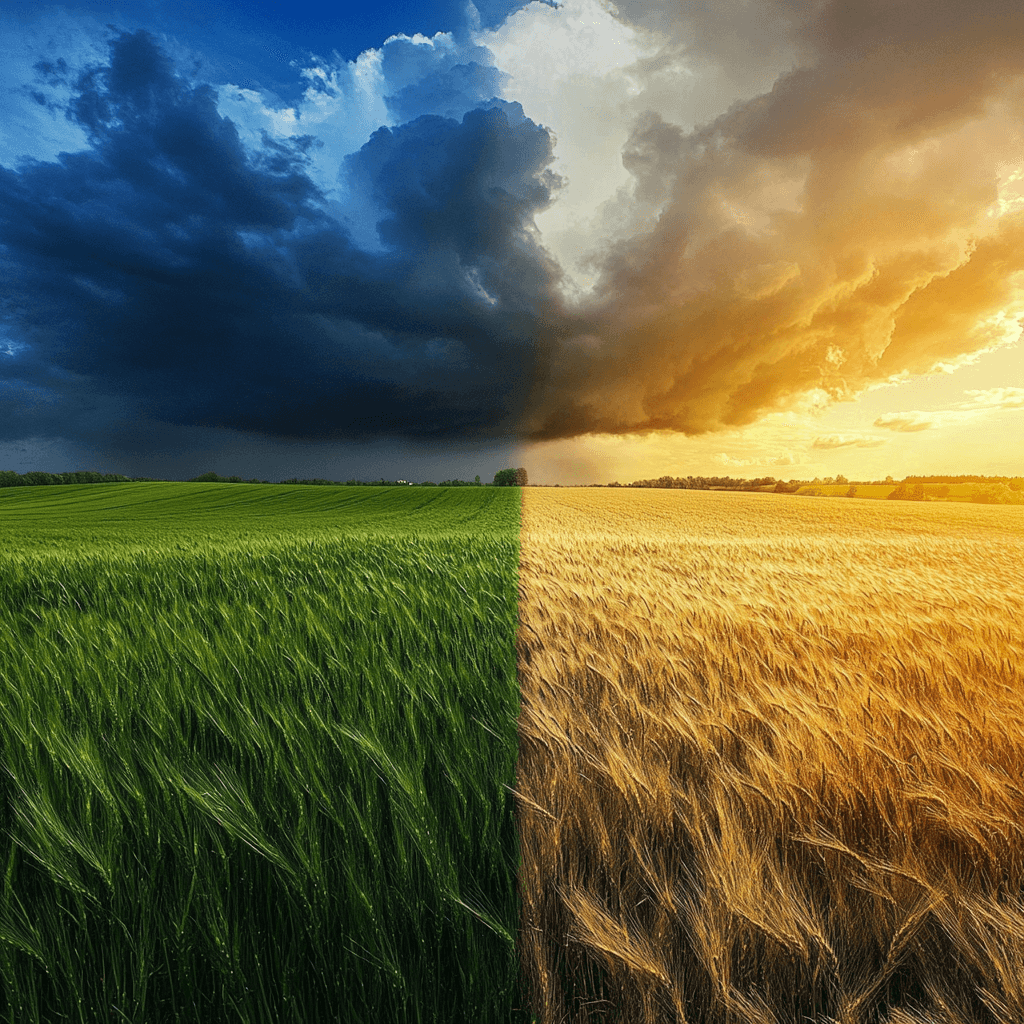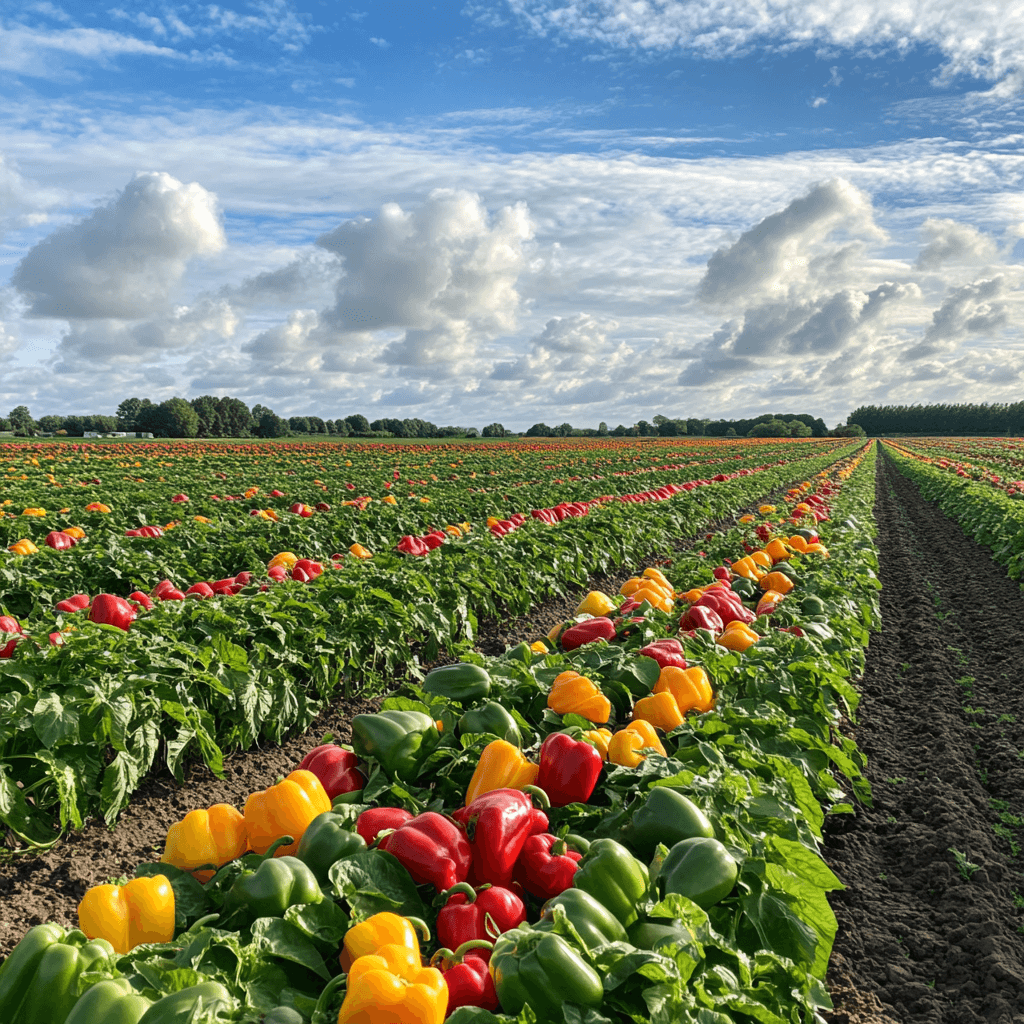Who ordered the sun? Weathermanipulation in the future
In the column series "What the world would be like, if..." Elcke Vels explores intriguing scenarios that deviate from the status quo.
Published on February 15, 2025

Our DATA+ expert and Editor-in-Chief, Elcke Vels, explores AI, cyber security, and Dutch innovation. Her "What if..." column imagines bold scenarios beyond the norm.
A wedding ceremony that has fallen through, a failed harvest, a soaking wet bike ride: bad weather throws a spanner in the works at the most inconvenient moments. What if, in the future, we were no longer dependent on the weather gods, but could decide for ourselves where the sun shines and where and when it will pour with rain?
06:15. The alarm goes off. I open my eyes, rub them and look out the window. Pitch black. Pouring rain. Great. As a fifteen-year-old, I always had to be on my bike at 7 a.m. for the 15 kilometers to school. Rain or shine. I didn't make it easy on myself. A rain suit? Forget it. They would see me coming in the schoolyard anyway. No, I'd just wear wet jeans and mascara that had run.
No, I wasn't religious. But often enough I would press my palms together and beg the weather gods, while lying in my warm bed, 'Please, no rain today, no rain!' I'm sure more people do that here in rainy Holland.
In control
We are still a long way off, but weather manipulation is already being applied in various places around the world. The most commonly used technique is cloud seeding, in which substances such as silver iodide or sodium chloride cause precipitation. This is used to combat droughts or to increase agricultural yields.
In China, they used to apply weather control to wash away smog during the 2008 Olympic Games. The United Arab Emirates manipulate the weather to combat extreme drought in the desert country. Although this has sometimes led to unexpected downpours and flooding.
That is not very useful, of course. What if, … we had much better control over weather manipulation? What if we could give air traffic at Schiphol a helping hand by making the clouds disappear, while at the same time providing rain for the farmers' fields a few kilometers away?
Drones: our partners in crime
The year is 2050. We have learned the tricks of the trade. Our partners in crime: advanced drones! Drones not only inject substances such as silver iodide into the air, but also use other technologies to exert a more precise influence on the air and clouds. The weather drones are equipped with lasers that can influence the charge of water droplets in clouds. Small water droplets form in a cloud and merge into larger droplets to cause rain. If you change the charge of these droplets, you can speed up or slow down the process, and even determine exactly where it will happen. Using real-time data (such as weather forecasts and humidity), drones can accurately deliver the right amount of charge to the right place, to cause rain very locally—for example, over a specific field.
An optimal potato harvest
Indeed, local weather manipulation offers farmers the opportunity to optimize their harvest by precisely tailoring the weather to the needs of their crops. Potatoes require a lot of moisture, while wheat and tomatoes benefit from dry periods with sun. Drones can regulate this on a small scale. Heavy rain in the Bollenstreek while the sun is shining brightly thirty kilometers away? No problem! Oh, and the greenhouses? They are no longer necessary. Peppers are now growing in abundance in the sunny Dutch fields. That saves on energy costs.

Aviation and Metallica do a happy dance
Aviation is also doing a happy dance now that local manipulation is possible. The precise control of wind and precipitation ensures that airports suffer fewer delays due to bad weather. In addition, we have the dense fog under control, which in the past often caused air traffic to be shut down, for example at Eindhoven Airport.
Also important: what about festivals and sporting events? An Ajax soccer game where the rain never spoils the game again. Or a Metallica concert where the guitar solo is not drowned out by an unexpected thunderstorm. Hell yeah!
A skeptical note
In short: no more poor school children cycling home in the pouring rain, no more weddings ruined by sudden downpours, happy farmers, safe air travel and satisfied festival-goers. That doesn't sound so bad. I am quite sure that the teenage version of myself would welcome the idea with open arms!
Although now that I am a day older, I am a lot more skeptical about the world I just described. Because whether it will ever really come to the point that we are completely in control and can actually counter the negative effects remains to be seen. Sure, it's nice to have a little sunshine during the Metallic concert, but if that causes a whirlwind in Belgium, we'll have a real neighborly war on our hands. How far can we go without completely throwing everything out of balance? Also a scary thought: what if countries decide to manipulate the weather as a political move?
Okay, let's first make sure that no two-meter-long icicles fall from the sky!
